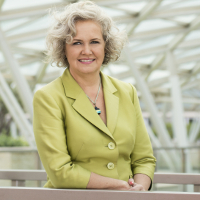It’s all about relevance.
Travelport may call itself a ‘travel commerce platform’, but in the eyes of many in the travel industry, it’s still a global distribution system (GDS) company, enabling automated transactions between travel service providers (mainly airlines, hotels and car rental companies) and travel agencies.
This is one of the challenges it faces – changing perception of what it is, what it offers, what role it can play in the industry, and how it can add value to its customers, the travel agents.
For many years, these agents were completely reliant on the GDS companies for services, products and rates, in order to provide travel-related services to the end consumer. That reliance came to an end a long time ago, thanks to the emergence of the internet and the host of direct booking channels now on offer.
So, how then does a GDS company like Travelport evolve and remain relevant?
“They talk about this omni-channel approach and people buying differently,” says Christie. “At Travelport, we talk about an ‘omni-source’ opportunity. We need to source content from a multitude of different channels, so that we can provide this to our clients.”
So, Travelport is developing products that incorporate these ‘external’ or ‘direct’ booking channels. Their relatively new ‘The Power of the Platform’ campaign is a good example, with its four aspects of connecting travel choice, driving travel performance, empowering travel experiences, and delivering travel intelligence.
“The intention behind it is that the airlines, the agents, everyone has to have the choice of where they get their information or content from,” says Christie. “We’ve recognised that from a distribution platform point of view, there are online deals or opportunities for agents. The most important thing for us is to ensure that the agents stay within the workflow of that booking.”
“We’re also recognising that airlines want to sell their products how they want sell them. We would be naïve to think that our agents don’t have access to that. So, we’re giving the customers that choice. Down the line, the future lies in a single view.”
Two years ago, the Lufthansa Group caused a bit of an industry stir when it announced that it was imposing an additional charge of €16 ($18.5) when booking through an external GDS rather than their own systems. They stated that their choice was based on the fact that the costs of using external systems were several times higher than their own. Just a few months ago, British Airways and Iberia followed suit, saying they would implement a $10 surcharge from 1 November.
Whilst this is not an ideal scenario for the GDS companies, Christie doesn’t begrudge the airlines nor resent their decision to go this route.
“For those airlines, where they are going to try and manage their costs are on distribution charges, whether it’s through the technology provider, the TMC, the caterer etc, particularly in ‘home’ markets where they are competing with airlines using different models,” she says. “The airlines are going to look for every opportunity to cut their costs and manage their yields, and that’s why they’re in business. I challenge anyone to say they can do it better.”
And what about closer to home and specifically the region that Christie presides over? Are there more pressing issues and what are her thoughts on the state of her industry in South Africa?
“We’re an industry operating in junk status,” she says. “How we do that and how we manoeuvre through this storm is going to show how strong we are. The easiest thing is for us to talk about how bad it is, and the more we do that and it filters down to our customers, the more that costs will be cut even further. But, if customers are managing their costs, it doesn’t mean they are not travelling. It just means we’ve got to become far more creative in how we sell our products, be more engaging and know exactly who our customers are.”
And stay relevant, of course.

